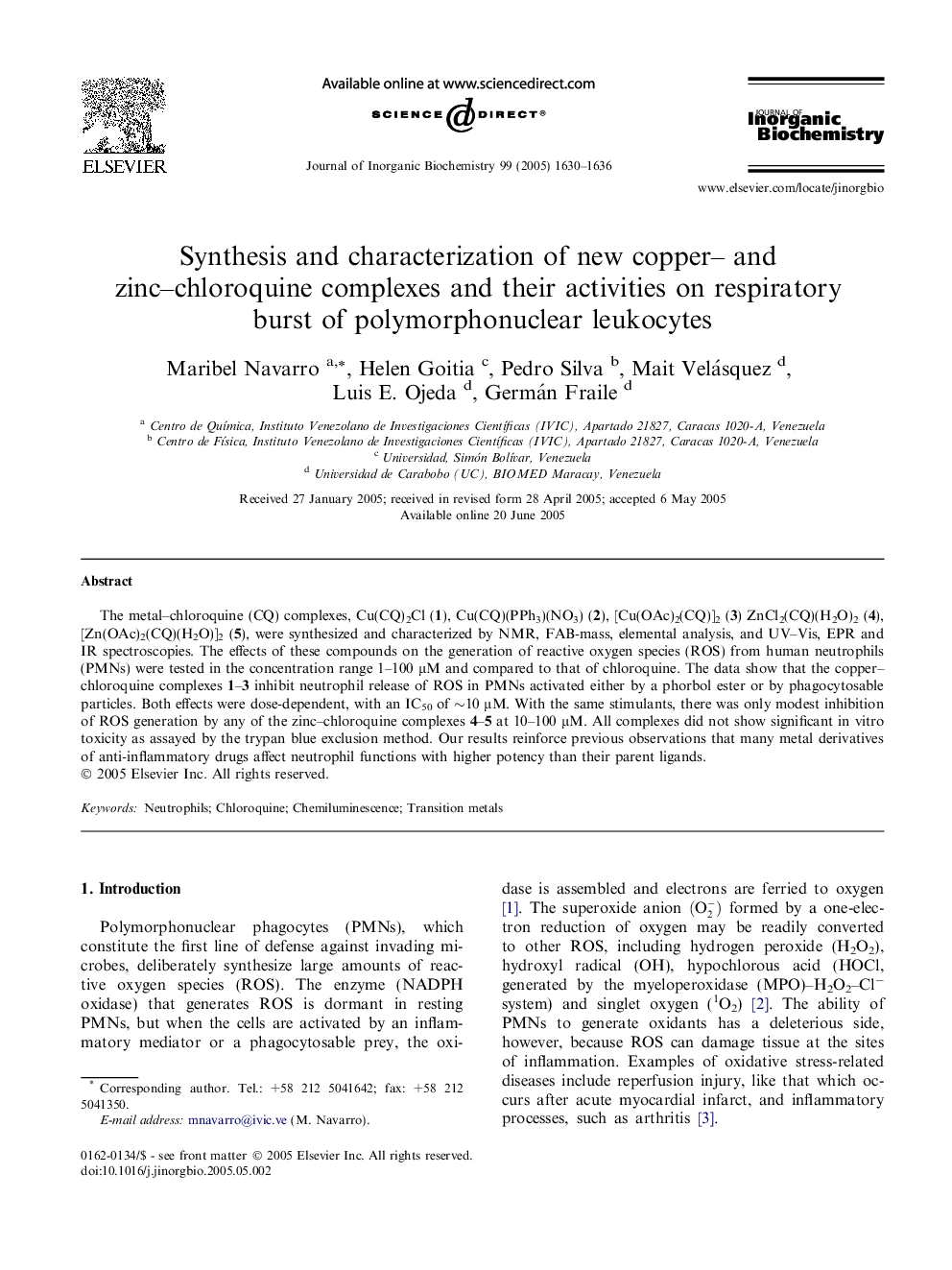| Article ID | Journal | Published Year | Pages | File Type |
|---|---|---|---|---|
| 10574288 | Journal of Inorganic Biochemistry | 2005 | 7 Pages |
Abstract
The metal-chloroquine (CQ) complexes, Cu(CQ)2Cl (1), Cu(CQ)(PPh3)(NO3) (2), [Cu(OAc)2(CQ)]2 (3) ZnCl2(CQ)(H2O)2 (4), [Zn(OAc)2(CQ)(H2O)]2 (5), were synthesized and characterized by NMR, FAB-mass, elemental analysis, and UV-Vis, EPR and IR spectroscopies. The effects of these compounds on the generation of reactive oxygen species (ROS) from human neutrophils (PMNs) were tested in the concentration range 1-100 μM and compared to that of chloroquine. The data show that the copper-chloroquine complexes 1-3 inhibit neutrophil release of ROS in PMNs activated either by a phorbol ester or by phagocytosable particles. Both effects were dose-dependent, with an IC50 of â¼10 μM. With the same stimulants, there was only modest inhibition of ROS generation by any of the zinc-chloroquine complexes 4-5 at 10-100 μM. All complexes did not show significant in vitro toxicity as assayed by the trypan blue exclusion method. Our results reinforce previous observations that many metal derivatives of anti-inflammatory drugs affect neutrophil functions with higher potency than their parent ligands.
Related Topics
Physical Sciences and Engineering
Chemistry
Inorganic Chemistry
Authors
Maribel Navarro, Helen Goitia, Pedro Silva, Mait Velásquez, Luis E. Ojeda, Germán Fraile,
